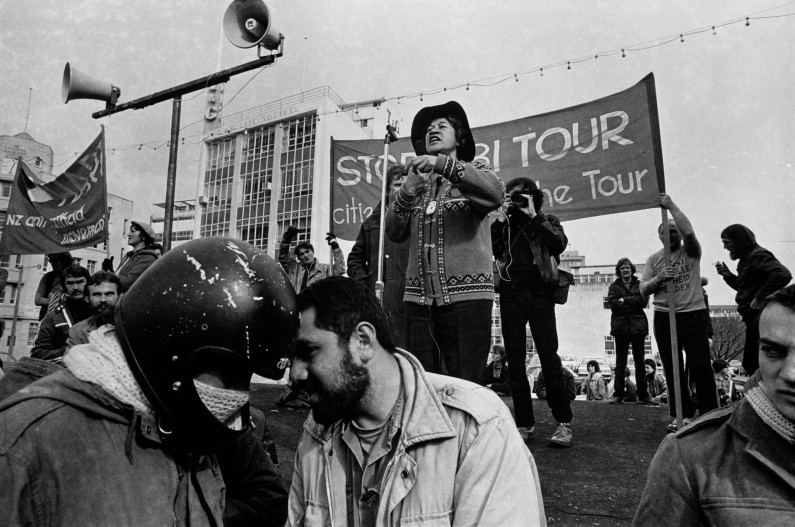1981 Springbok rugby tour
Hamilton’s Bloodiest Day

The 1981 Springbok rugby tour divided Aotearoa and ignited some of the most intense protests in our modern history. The day the Springboks were due to play in Kirikiriroa Hamilton became one of the most violent and defining moments the city has seen.
In the 1980s, rugby was still central to New Zealand identity, and South Africa remained one of our most formidable opponents. But South Africa’s policy of apartheid made international sporting contact deeply controversial. Public opinion was bitterly divided over whether the tour should go ahead. From the moment the Springboks landed in Auckland, they were met with fierce and organised resistance. Protests followed them from city to city, often overshadowing the matches themselves.
Their first game, held in Gisborne, drew a crowd of passionate protestors, surprising police with their intensity. The next match was scheduled three days later in Hamilton at Rugby Park.
On the morning of the game, thousands of protestors arrived in the city, many determined to shut it down. Police were brought in from across the country, but they were unprepared for the scale of resistance. Protestors tore down fences with their bare hands and stormed the pitch, refusing to leave unless the match was cancelled. Without resorting to force, police couldn’t remove them. When a threat emerged that a light aircraft might crash into the stadium in protest, the match was called off.
While many know the story of the cancelled game, fewer remember what followed. That night, Hamilton erupted. Protestors were hunted down and attacked by enraged rugby supporters. Homes were vandalised and some were invaded. Cars filled with angry fans roamed the streets, looking for anyone they could identify as a protestor.
Hamilton changed that day. Deep divisions were exposed, and lines were drawn that would not be easily erased.
